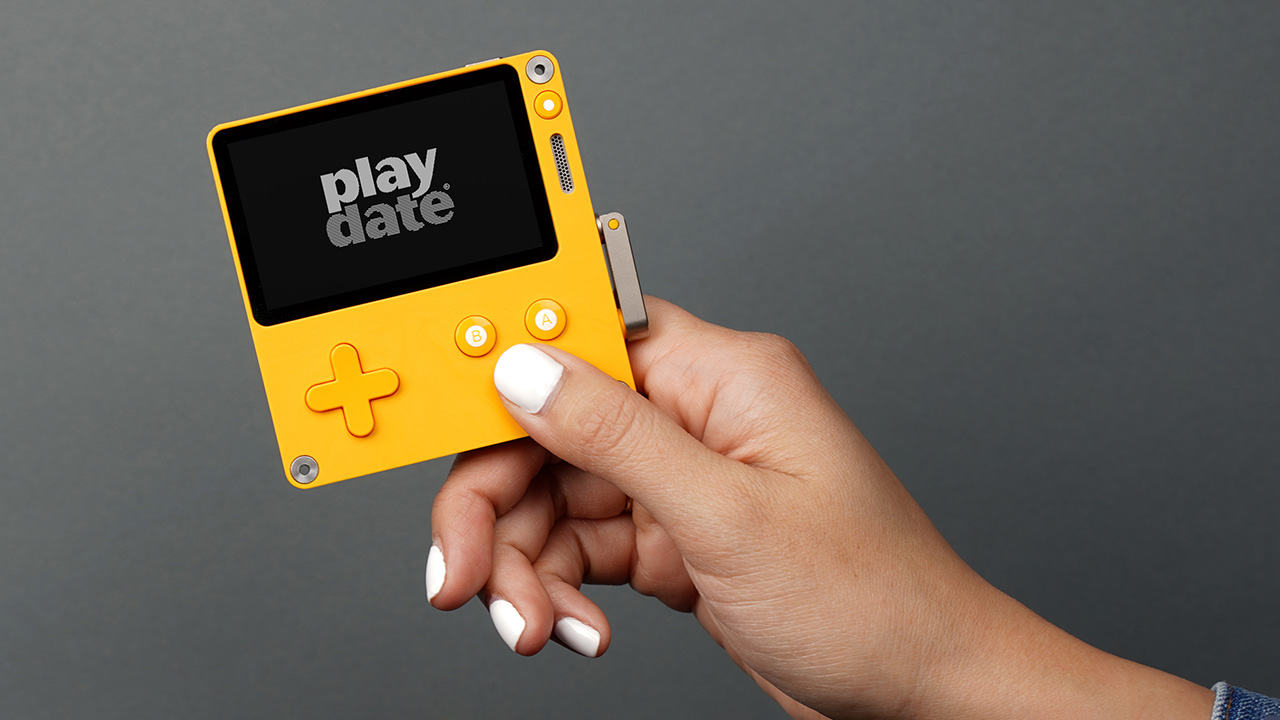It may look like the unlikely outcome of teleportation experiment involving a Sega Bass Fishing controller and a Game Boy Micro, but Playdate is a tiny, handheld games console with a novel form of input.
Image 1 of 3
Image 2 of 3
Image 3 of 3
In case this is your first contact with the boxy yellow machine, it’s an extremely low-powered attempt to bring bite-sized games to a dedicated system instead of a cellphone. The crank on the side is a gameplay tool, and doesn’t charge the system or act as a Van de Graff generator. The only hair-raising will, hopefully, come from the games.
The specs are lower than a Raspberry Pi Zero W, but much more than a Raspberry Pi Pico. Playdate is powered by an Arm Cortex M7 CPU running at just 180MHz, 16MB of RAM, 4GB of flash (up from an initial 2GB), and a 2.7-inch, 400 × 240 1-bit Sharp Memory LCD that creates images in pure black and white, no shades of gray which means dithering is required to add texture and tone to a game. The screen lacks a backlight, relying on the reflective nature of the screen to illuminate your games. Anyone who had a Game Boy will be familiar with these principles, as the reflective screen and dithered graphics were part of Nintendo’s classic handheld. There’s Wi-Fi and Bluetooth on board, along with a headphone jack and a USB-C port for charging.
US software publisher Panic Inc. (that recently moved into games with titles like Firewatch and Untitled Goose Game) and Swedish industrial designer Teenage Engineering are the brains behind this quirky and interesting device.
Games, which are being made by the likes of Bennett Foddy, Zach Gage and Katamari Damacy creator Keita Takahashi, will arrive as a ‘season’, with 24 (recently doubled from 12) of them delivered wirelessly to the handheld, two a week, for no extra charge. The platform is open source and will allow games that aren’t part of an official ‘season’ to be side-loaded. An SDK will be available for Windows, Linux and Mac OS, which will include a simulator and debugger, and will be compatible with the C and Lua programming languages.
In an in-depth interview with Edge magazine, reproduced by Gamesradar+, Panic Inc. co-founder Cabel Sasser describes the device’s inception: “The first question from the CEO was, ‘Do you really think anyone’s going to buy this?’ I was like, ‘I’m not sure. But it’s something we really want to do, if you can help?’ And then the consultants were like, ‘It’s going to cost you, bare minimum, a couple million bucks to even remotely get this thing off the ground.’”
The pre-order price has recently been raised (hence the increase in specs and number of games) and currently sits at $179. Pre-orders begin in July from play.date.
